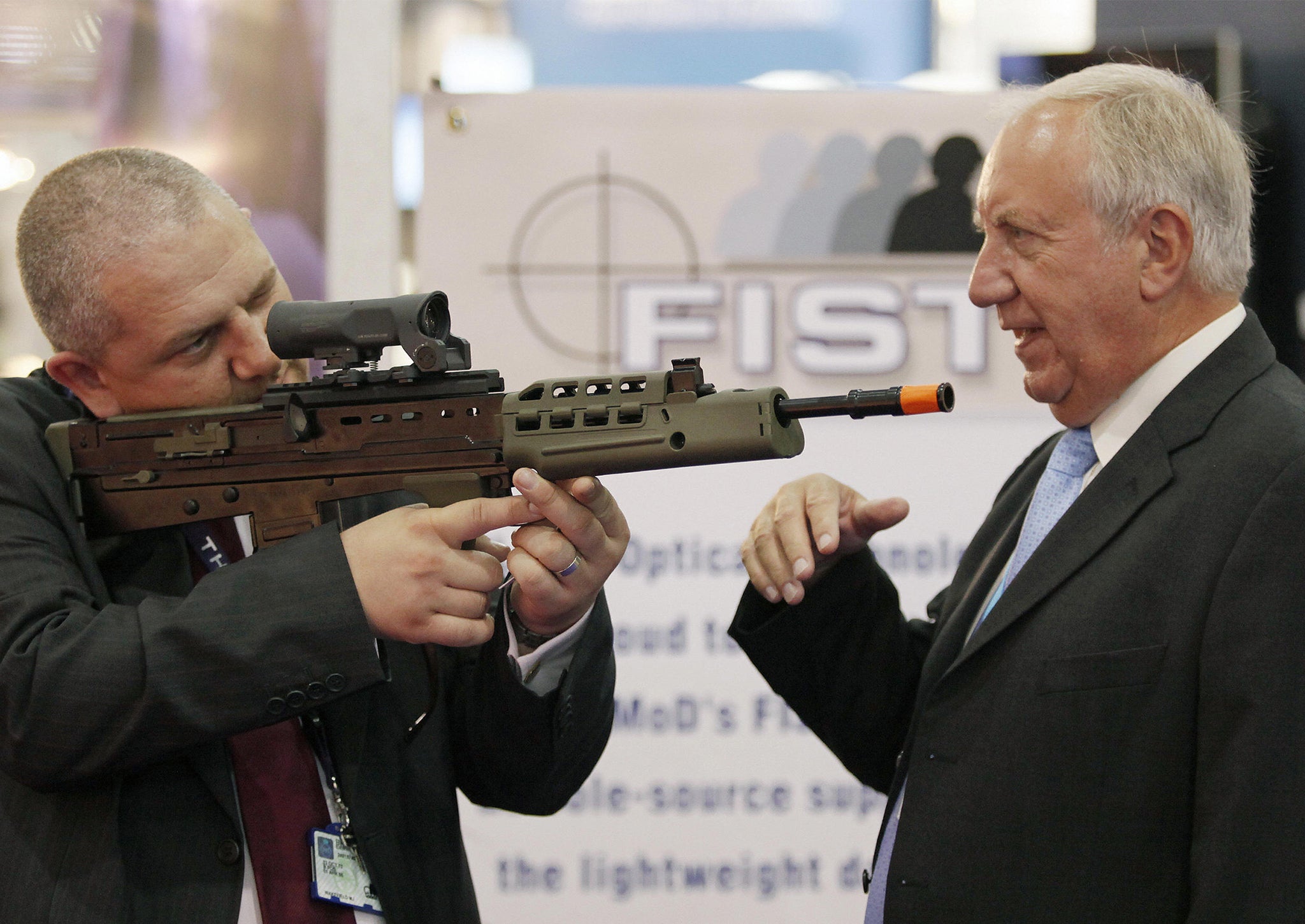If David Cameron really cared about refugees he wouldn't have just welcomed the world's biggest arms fair to London
In the last five years alone, the UK has sold arms to 19 of the 23 countries that the UN lists for grave violations against children

Many people have been asking David Cameron what he plans to do about the refugee crisis over the last few weeks. But what about his role in helping create the crisis in the first place?
This week London plays host to one of the biggest arms fairs in the world. DSEI (Defence & Security Equipment International) takes place in London’s docklands. When it was last here in 2013, 1,500 exhibitors sold small arms, missiles, planes, tanks, military electronics, warships, surveillance and crowd control equipment to 67 countries. Among them were some of the most fragile places on earth suffering the worst human rights abuses, including Saudi Arabia, Turkmenistan, Uzbekistan, Libya, Bahrain, Afghanistan, Colombia, and Pakistan.
"Why is the Government letting it taking place?" you might ask. A quick look at their own record provides clues. In the last five years the UK has sold arms to 19 of the 23 countries that the UN lists for grave violations against children, or where child soldiers are used in conflict, despite the fact that the UN has told governments to “expressly prohibit” such sales. In Somalia the UN has documented the recruitment of 1293 child soldiers. Yet the country has received £6.7m of arms from the UK since 2010.
The Prime Minister expressed incredulity when questioned in the House of Commons by Caroline Lucas MP about the connection between “arms sales and the terrible tragedy that we see unfolding around us”. True, Syria has not been top of the list for British arms sales. But weapons are pouring into it from countries across the Middle East that the UK has been dealing with. Refugees are fleeing conflict zones such as Libya and Afghanistan – two countries that Britain has not just sold arms to, but attacked, and with considerable human cost.
A decent response to all this death and chaos is surely to say that at a minimum we will welcome far more than 4,000 refugees a year, cancel the DSEI arms fair, and send the war profiteers packing. But we should also take the opportunity to challenge the Government over another aspect of the refugee crisis. Contrary to the narrative they've been trying to push, there is no such thing as "good" refugees and "bad" refugees, and the same goes for immigrants. People don’t leave their families, communities and societies in order to “get one over on us” or find a job at our expense (though if they did, this would fit rather well with the free market individualism we’re taught to respect).
Wanting to get more experience of the world is not a bad thing – Westerners do it all the time – but migrating into Europe is difficult, dangerous, disorienting. People are trying to find a future for themselves and their families in a world too often characterised by violence, poverty, unemployment, crippling inequality and injustice. In a more equal, peaceful world, people would still move. But it wouldn’t matter, any more than it matters that British people go to live in the Loire Valley.
So our focus should not be on stopping people moving, but on reducing inequality. We could make a start by constraining our financial system and breaking corporate power. These corporations are the real “economic migrants”, looking for any and every opportunity to exploit and profit, draining countries of their wealth and resources. Many parts of the world still haemorrhage wealth to Europe, even as we believe we’re "helping" them through our aid programmes. For example, it was recently calculated that governments and multinational companies are extorting $50 billion annually out of Africa, through schemes avoiding tax payments to some of the poorest companies of the world.
Now so many have shown their humanity towards refugees, we should take the opportunity to say that people are not the problem. The problem is those who foster hate in order to conquer. Like the famous cartoon in which a wealthy man sits with a pie, and the worker sits next to him with a small slice, and a poorer man sits next to him with no slice at all. “Watch him,” the wealthy man whispers to the worker, “I think he’s after your pie”.
Join our commenting forum
Join thought-provoking conversations, follow other Independent readers and see their replies
Comments
Bookmark popover
Removed from bookmarks